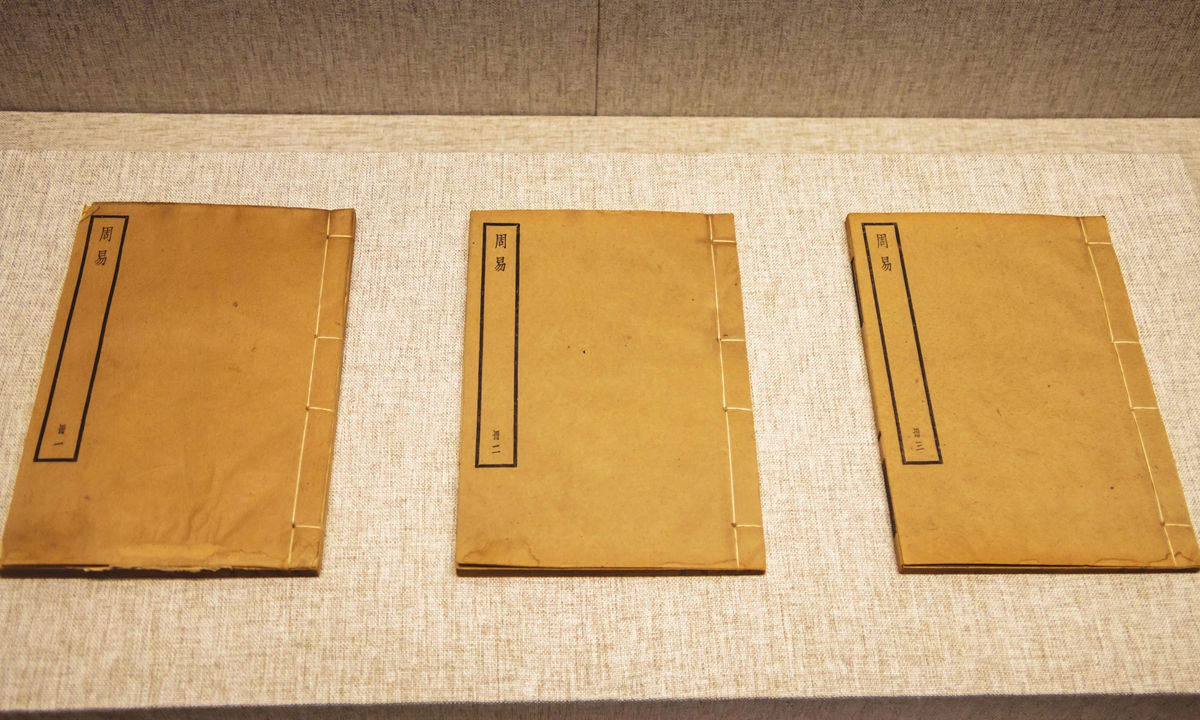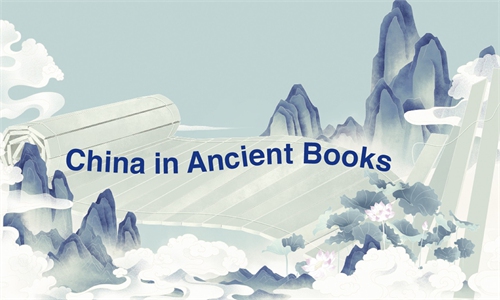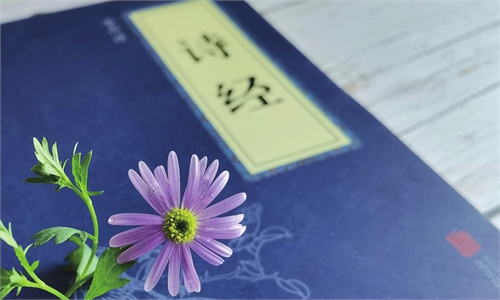ARTS / CULTURE & LEISURE
China in Ancient Books

Three copies of The Book of Changes in the Confucius Museum in Jining, Shangdong Province Photo: IC
'The Book of Changes' (I): Highest achievement in ancient Chinese philosophy
The Book of Changes, or Zhouyi in Chinese, is one of the ancient Chinese classics with emphasis on the essential nature of changes.
It is believed that Zhouyi originated from Fuxi, the remote ancestor of Chinese civilization, developed by King Wen of Zhou during the end of the Shang Dynasty (c.1600BC-1046BC) and further sublimed by Confucius and his disciples during the Spring and Autumn and Warring States periods (770BC-221BC).
Legend has it that more than 7,000 years ago, Fuxi created the eight trigrams. And he also called on rulers to worship Heaven, love the people, and uphold justice, known as dadao, or truth.
Another legend goes that King Wen of Zhou in the Shang Dynasty was a very wise and able king, who attracted many like-minded people to join him. So he was envied by the tyrannical king of the Shang Dynasty, who put King Wen of Zhou into prison. During this seven years of hard time, King Wen of Zhou insisted on study truth left by Fuxi and created Zhouyi. He developed Fuxi's trigrams into 64 hexagrams with 384 interpretations of each line of the hexagrams for augury. This showed his tenacious spirit that has inspired the Chinese people to overcome difficulties.
In ancient times, people were often perplexed by natural disasters or accidents for "unknown reasons." So they often referred to Zhouyi to explain these complex natural phenomena and other matters that they misunderstood as evils done by spirits. When divining, they also resorted to the auguries described in Zhouyi for inspiration.
The discovery of one of the earliest copies of Zhouyi in 1973 at the Mawangdui Han Tomb in Changsha, Central China's Hunan Province proved Confucius's contribution to Zhouyi, and the fact that Zhouyi is much more valuable than just a book for divination.
In his later years, Confucius became fascinated with Zhouyi. He once said: "If I had read Zhouyi in my 50s, I would never have done anything too wrong."
According to traditions, Confucius and his disciples made great efforts to compile and interpret the book in commentaries known as the Ten Wings, which constituted the other part of Zhouyi.
These 10 commentaries include interpretations of the augury language. The Ten Wings made Zhouyi much easier for ordinary people at the time to understand and are still used today.
Global Times


